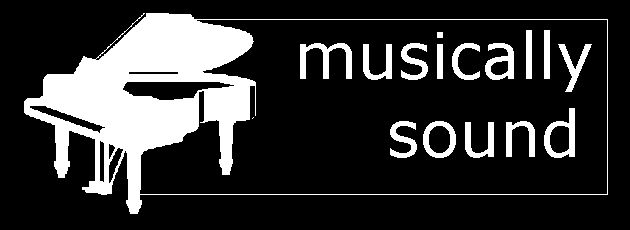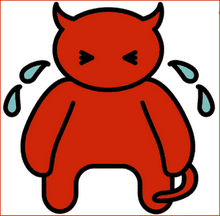 Porcupine Tree
Porcupine TreeFear of a Blank Planet
[Progressive Rock]
For a band with such a varied and impressive track record, Porcupine Tree’s rise to mini-stardom in 2005 was ironic for two reasons. Firstly, that year’s Deadwing was among their weakest recordings, for once finding the band struggling to pin down a distinct sound and thus resulting in an inconsistent and, in places, distinctly mediocre album. Secondly, despite the fact they had been gradually building their fan base with a decade’s worth of hugely ambitious, multi-layered, mostly wordless soundscapes, the only reason the Deadwing received any attention at all was down to the four minutes of pop perfection in lead single ‘Lazarus’. They had, in effect, become recognised through of a lack of ambition (who’d have thought it?), something they are clearly looking to redress with Fear of a Blank Planet - their most obtuse record since 1996’s career-defining masterpiece, Signify.
Although their latest effort does retain elements of Deadwing’s tighter, heavier sound, it is more closely related to their earlier records, featuring longer, more free-form songs (the shortest of the six is five minutes long), a greater emphasis on texture (rather than melody) and some very strong instrumental pieces. Fear of a Blank Planet is also another concept album, though unlike Deadwing’s vague connection to a Stephen Wilson film project that has subsequently been shelved, the narrative here helps to expand rather than restrict.
Imagining an apathetic, culturally sterile near-future, each of the songs is a document of depression as the band attempt to uncover the reason for such a decline. Television and video games are predictably the easy target (“The flicker of the screen / I’m basking in the shit flowing out of it”), however other, less obvious factors are also explored. For example, the nature vs. nurture debate, society’s desire to medicate, the role of the media, loveless sex and childhood alienation all feature prominently, though never to such an extent that the listener is denied the opportunity to make up his or her own mind. Considering Wilson’s sketchy lyrical past (see ‘Hatesong’ for a good cringe), it is certainly encouraging to see him engaging on a more intellectual level and attempting to achieve the same proficiency with words that he has so often exhibited with a guitar.
Continuing the band’s habit of excellent artwork, the accompanying booklet is laden with creepy images of ‘blank’, seemingly soulless children staring right out of the page, lending extra weight to the apocalyptic theme and helping to tighten the overall concept.
Though technically consisting of six songs, Fear of a Blank Planet is essentially a single piece of music split into six different sections, imploring the listener to listen for the duration rather than dip in and out for a short fix. Though this could have failed spectacularly and resulted in the record rapidly gathering dust, the music is more than strong enough to warrant fifty minutes’ attention.
The title track kicks things off nicely, opening with a gently picked guitar and uptight drums before multiple key changes, lots of reverb and cosmic vocals combine to give it a brutal, tempestuous surge. Aesthetically it is very similar to Deadwing’s fantastic titular piece, though it just about emerges victorious with the sheer weight of its gravitational pull, ever threatening to implode, ethereal yet dangerous.
Such an aural rush inevitably requires a lengthy comedown, and one is helpfully supplied in the form of ‘My Ashes’ - a chilled-out, effortlessly bliss number that takes its time and refuses to be rushed. Mainly musing on life’s regrets (“And my ashes find a way beyond the fog / And return to save the child that I forgot”), Wilson has crafted a ballad on par with some of his best work. Though not quite equalling the sinister majesty of ‘.3’ or the heart-rending candour of ‘Stop Swimming’, its carefully measured guitar and keyboard verses and pounding string crescendos would certainly not pale in their company.
The best is still to come, however, with the ridiculously long, ridiculously overblown and ridiculously ambitious eighteen minutes of ‘Anesthetize’. Attempting to describe its musical construction would be like trying to understand the plot of Inland Empire - a pointless and unnecessary endeavour - but, suffice to say, its like ‘Bohemian Rhapsody’ on speed and methadone, shaken up, left to stew and multiplied by infinity. It is the type of song that reveals something new with each listen, cannot fail to excite even the most ardent cynics of prog and, one feels, the type of song Porcupine Tree wanted to show the world they could make. Having now achieved a measure of fame, the desire to experiment appears to have recaptured Porcupine Tree’s imagination and, at times, sees them hurtling above and beyond the imposing peak of ‘Voyage 34: Phase 1’ which, for over a decade, has been the band’s defining, and greatest, achievement.
The fourth song then continues the album’s impressive form, consisting of some free-form drumming, pleasant guitar strums, sweeping soundscapes and more of Wilson’s breathy melancholia. The title of ‘Sentimental’ perhaps doesn’t do the song justice, pre-empting a clumsy whine while the content, in actual fact, thoughtfully considers the surreptitiousness, inevitability and accompanying misery of the ageing process: “Sullen and bored the kids stay / And in this way they wish away each day”. Admittedly, ‘Sentimental’ never attempts to be in the same league as its predecessor, but it is nevertheless solid and, though by itself nothing special, is holistically valuable, adding to rather than detracting from the formidable first half.
However, either because of or in spite of the first two-thirds’ impressive strength, the final two songs are something of a disappointment. ‘Way Out of Here’ suffers from characteristics often (wrongly!) said to correlate with progressive rock - that is, it is a formless, dull and forgettable mess, unlikely to please newcomers to or veterans of the genre. Closer ‘Sleep Together’ is a little better, beginning menacingly enough with refrained, earthy drums and some electronic squiggles before being swamped by a horribly conceited and unnecessarily brash chorus that really saps the verses of any potency; think ‘A Design for Life’ or, more recently, any Muse song.
Following in Deadwing’s footsteps, Fear of a Blank Planet again resists Porcupine Tree’s previous habit of producing either 5-star records (Voyage 34: The Complete Trip, The Sky Moves Sideways, Signify, In Absentia) or absolute musical monstrosities (Stupid Dream, Yellow Hedgerow Dreamscape). However, whereas the former was bona fide mediocrity, the group’s latest effort is a four-and-a-bit-star case of the almost great which can nevertheless be proud of itself. In strict mathematical terms, four and a half good songs out of six equals a solid seventy five; however, given the mind-blowing brilliance of ‘Anesthetize’ and my long-standing support of the band, I’m inclined to be a little generous. 81



1 comment:
This sounds fucking tortuous.
Post a Comment